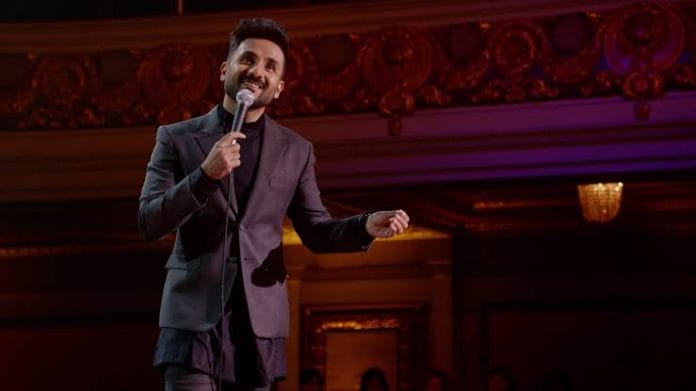A comic’s monologue became one of the most important pieces of national news this month. That fact in and of itself is fairly concerning, but the way this happened is grievous. There is already a large pile of opinionated discourse on whether what Vir Das said on ‘Two Indias’ was justified, so I won’t write about that. What this article concerns itself with are some glaring problems with how this discourse was had.
I wish to present a critique of the Indian media, especially of what has come to be its most destructive and popular form – television news. This ecosystem has transcended the limitations of television. All major TV channels have YouTube channels too and they have enough influence that they can shape the narrative around print media that is already desperate on the account of an ever-decreasing readership. Most media is, in terms of business, an advertisement platform. Ad space is what news channels must sell to make money. Charles Baudelaire, the French poet, famously wrote “The greatest trick the Devil ever pulled was convincing the world he didn’t exist” well, I’d argue that the greatest trick TV newsrooms ever pulled was convincing the Indians that they work purely in public interest and that opinions are news.
Opinion as news
On 16 November, Zee News put up a video on YouTube with this description: “Defaming India in America – Why Vir Das should be arrested? What actor-comedian Vir Das did in the name of freedom of expression in America is very shameful. He has made very objectionable comments against India. So, it is necessary that Vir Das should be arrested and prosecuted.”
The segment featured on the video is one where Sudhir Chaudhary claims to be responding to Das in a 25-minute rant on national TV. Arnab Goswami, the editor-in-chief of Republic TV, also had some opinionated critique on the matter before a debate on the issue, something that is supposed to be unbiased. Both the channels started hashtags for their respective news shows. How is a panelist supposed to keep a point contrary to the pre-established narrative for viewers when “#AbuseIsNotComedy” in red hangs above their tiny frame?
I don’t think the amount of yelling on a programme like Goswami’s debates has anyone surprised. The entire 50-minute ordeal was reminiscent of the Two Minute Hate from George Orwell’s book 1984. Calling such shows Orwellian would be merely stating the obvious. A subject for the hate is chosen – here it’s Vir Das, in the book it’s the detested traitor Goldstein – the only exception is that the two-minute hate is just two minutes long, not over an hour and disguised as news.
Goswami even felt compelled to talk about Colonel Viplav Tripathi and his family who lost their lives in an ambush in Manipur. When the attack happened, Goswami was very clear in questioning the so-called “Urban Naxals” on theirsilence regarding the tragedy, actively ignoring to press the State about the law-and-order situation under its jurisdiction. I would call it doublethink, but perhaps I have invoked Orwell enough for today.
Chaudhary decided to bring up Vivekananda’s Chicago address in this context. He then diverted to talking about the insult to Hinduism. How he ended up giving a communal angle to a monologue by a comic against communal separatism after invoking Vivekanand is baffling.
Both the gentlemen had an issue with the fact that Das would get followers and make money off the monologue. This is, of course, after the two anchors aired their hate-mongering on television and uploaded multiple videos on multiple social media platforms.
Also read: Thank god for Netflix and Vir Das. India’s craving comedy and satire, but TVs are a no-go
Journalistic pursuit of truth
If Das is an ambassador for Indians, as Chaudhary said, then our journalists are supposed to be ambassadors of truth to the same Indians, and as long as they peddle their unbridled opinions as news, they will remain unjust to their duty.
There is a common notion in journalism that no piece of news can ever be perfectly objective, but I think there is something both romantic and necessary in the pursuit of journalistic objectivity, a pursuit the present class of journalists strangle to oblivion and crucify for all to see. Being opinionated is not criminal, this article is proof of that, but to thrust the opinion of the ascendant class down the throats of the common man when what he expects to view is the news, is something that needs correction. The frequency and the agenda of inspiring hate for political benefit of the same ascendant class are what concerns me to the brink of horror.
Vinayak Ohri is a student at Jaswant Modern Sr. Sec. School, Dehradun. Views are personal







